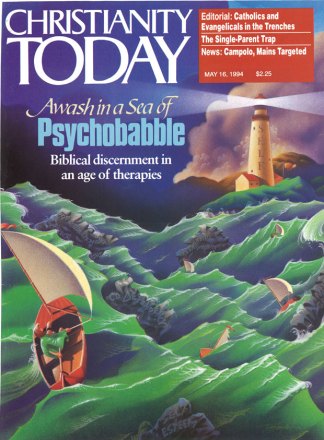School district for Hasidic Jews faces challenge.
From a tiny, reclusive village in the sleepy Catskills, an orthodox Jewish community is prodding the U.S. Supreme Court to re-evaluate its long-held test for accommodating religion in the public square.
At issue is whether Hasidic families in rural Orange County, New York, can preserve a public-school district created by state officials specifically for their village’s handicapped children. The Kiryas Joel Village School District provides special education for about 100 children with severe disabilities—offering costly state-financed programs not provided by the village’s private school.
The district, approved by Gov. Mario Cuomo in 1989, was quickly denounced as a violation of the First Amendment. Three courts later ruled the district was unconstitutional. Unmoved, villagers, who largely belong to the Satmarer sect of Hasidic Jews, appealed last year to the Supreme Court, which heard oral arguments for the case in March.
“This case turns religion into a menace, rather than a treasure that the First Amendment tries to protect,” says Nathan Lewin, attorney for the school district.
Questioning the Lemon test
The Supreme Court will decide whether the New York legislature acted constitutionally when it established the district. Challengers argue that the special district has the “primary effect” of advancing religion, under the test established by the Court’s 1971 Lemon v. Kurtzman decision.
In oral arguments in the case of Board of Education, Kiryas Joel Village School District v. Grumet, Lewin said, “It turns the Constitution on its head to say that the free exercise of religion becomes the one impermissible vice.”
The broader question is whether the Court should scrap or amend the Lemon test, which has been criticized as unworkable by five of the current justices.
Whether the Court revises Lemon will hinge on how it interprets the New York statute creating the public-school district for Kiryas Joel. When the village was settled in the 1970s, special programs were available to the Hasidic children through the neighboring public-school system, in which teachers came to an annex to the private yeshiva schools.
But in the 1985 Aguilar v. Felton ruling, the Court banned public teachers from working at private religious schools. The Hasidic children either went without the services or attended the Monroe-Woodbury Central School District. Monroe-Woodbury, however, proved too traumatizing for the handicapped children, who typically speak Yiddish, and wear earlocks and distinctive clothing.
Hasidic parents petitioned the state legislature for relief. The state created a secular school district—a one-story, brick schoolhouse—with no Hasidic teachers, no religion classes, and not a single Jewish religious symbol.
But officials of the New York State School Boards Association, who launched the lawsuit, say the statute creating the district is unconstitutional, regardless of how it is administered. New York school board attorney Jay Worona told the high court that the state was granting governmental power to a religious community.
Trekking through a dense thicket of legal analogies, the justices addressed all three requirements of the Lemon ruling that the government action:
• Have a secular purpose;
• Neither advance nor inhibit religion;
• Not involve excessive government entanglement with religion.
Exercising political power
Justice Antonin Scalia, visibly frustrated, asked Worona: “You cannot accommodate any beliefs that spring from religious motivation?” Scalia dismissed the constitutional concerns, arguing that the New York statute properly accommodated Satmarer customs without endorsing their religious beliefs.
Chief Justice William Rehnquist challenged Worona’s attack on the community’s access to political power. “You’re saying that the Satmarers, because they all live together, can’t exercise the same governmental authority that other people living together would be able to exercise.”
School district advocates say no matter how the test is applied, it should not deny to any members of Kiryas Joel the same access to public services as non-village residents, so long as those services have a secular purpose.
“We pay taxes the same as everybody else pays taxes,” Abraham Wieden, Kiryas Joel school board president, told reporters outside the Supreme Court. “They [the children] are citizens, and they are afforded by the Constitution the same right, and that’s all that we are seeking.”
Steve MacFarland of the Christian Legal Society, who filed a brief on behalf of the village, said the First Amendment “doesn’t grant to nonbelievers a monopoly on government aid or legislative representation.”
As the only religion case on the Court’s docket this term, it has attracted a large gallery of church-state watchers.
The Satmarer Hasidim, descended from Hasidic Jews in the Romanian city of Satu-Mare, adhere strictly to the Talmud, from diet to dress and grooming. Like the Pennsylvania Amish, they shun most forms of popular culture.
While the village’s 12,000 residents are all Satmarer, divisions exist. Several hundred residents filed a brief saying the district is unconstitutional because the rabbis, who control the village’s religious life, also administer the school district.
By Joe Loconte in Washington, D.C.










